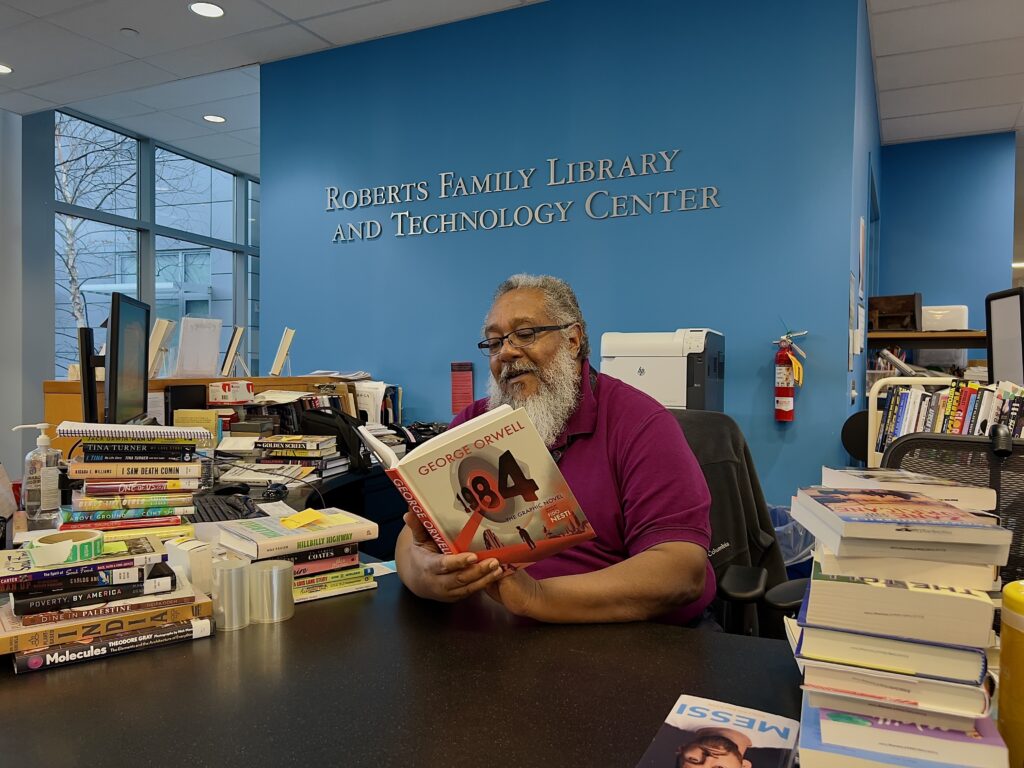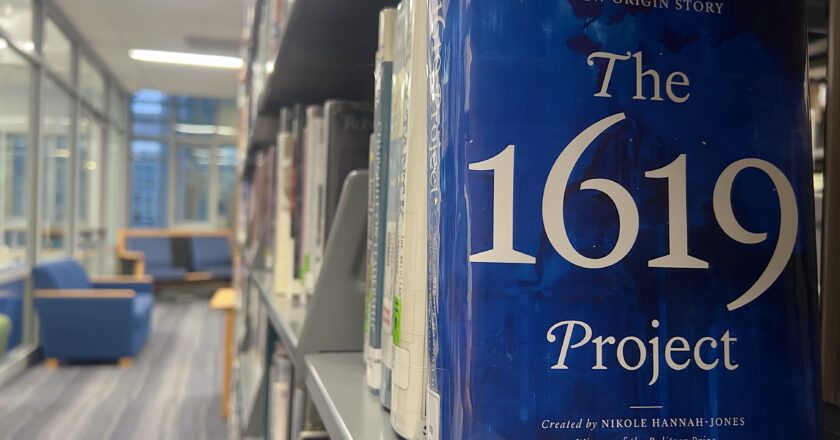Stories are essential. They have the power to create connection and emotional investment among readers, providing the empathy necessary to understand various cultures, identities and settings found within the text.
A particularly powerful story may even redefine the barriers constructed by society by removing uneducated prejudices. For this reason, the books that hold these stories are protectors of the truth, illuminating a path toward understanding and acceptance.
Unfortunately, this important role of books has come under significant attack in recent years. As of August 2023, there have been documented challenges to 1,915 unique titles this year alone, a 20% increase from the same period last year, according to the American Library Association.
Each individual challenge reflects a story, experience or idea that is facing oppression and erasure from America’s collective history.
This censorship is often proposed in states such as Texas and Florida, where private individuals, government officials or organizations are able to request the removal of certain titles from shelves after objecting to their content.
This content typically includes themes related to mental health, LGBTQIA+ representation, gender expression, race or violence/abuse. For this reason, titles such as Gender Queer by Maia Kobabe, The Hate U Give by Angie Thomas, and even The Kite Runner by Khaled Hosseini, a cornerstone of the freshmen English curriculum at GA, are frequently challenged for the alternate perspectives they offer.
“This is a whole different type of political organization [that is proposing these bans]. It used to be that this title here, that title there,” Mr. Roderick Thomas, Upper School librarian, said. “Instead, what is happening now is lists of books dealing with themes that do not fit certain political agendas are having a put spin on them, saying that they are deteriorating our society … ultimately it is about control.”

“This generation is much more socially aware and inclusive, and I think that generational difference is causing some people to feel that they want to hold onto values or beliefs that they are familiar with,” Mr. Michael Ferrier, Upper School English Department Chair, said. “I think that this is, unfortunately, a misplaced fear.”
As mentioned by both Mr. Thomas and Mr. Ferrier, book banning is part of a larger political movement aiming to censor certain identities within the U.S. While the act of censorship is unconstitutional under the First Amendment, the current objections are said to be exceptions by claiming to remove obscene or pornographic material from community libraries, which makes these state-level bans permissible. This precedent was set in 1982 during the Supreme Court Case, Board of Education v. Pico, and has since been exploited to ban a range of books.
However, the issue of eliminating certain literature runs much deeper, extending from a movement toward pushing a certain narrative in education and childhood development.
A particularly pertinent example is Florida’s “Don’t Say Gay” bill, as well as its new standards for teaching African-American history in which the personal and institutional harms of slavery are seriously undermined. Both of these serve to push an agenda in schools, which limits the breadth and historical accuracy students will receive of vital topics.
“They [book bans] prevent students from building their critical thinking skills and having access to material that can help teach them important lessons on how to be not only better students, but also better citizens and people,” Mr. Ferrier said. “To ban them outright, I think shuts down and short circuits student’s development and growth.”
However, book banning is not limited to historically conservative states. Pennsylvania, and even Germantown Academy’s neighbor Central Bucks School District, have been subject to book bans. Fortunately, GA has remained firm in its protection of access to literature and educational material.
“GA has been incredibly supportive … I can’t say that there has ever been an institutional request to not have a book available,” Mr. Thomas said. “There have been a few personal requests, some may even be thinking that they are speaking on behalf of the institution, but those people are no longer here.”
To recognize the significant censorship that is occurring outside of GA, the school celebrates Banned Book Week, which was Oct. 1 through Oct. 7 this year.
“I think that [Banned Books Week] is an opportunity for us as a department and the library of the school to reaffirm our commitment to intellectual exploration, demonstrating confidence in expression, providing students with access to materials and giving them the choice as to what is made available to them,” Mr. Ferrier said.
During the remainder of the year, Germantown Academy continues to uphold this commitment through a series of events run in the library, displays for challenged books throughout the school, and an English curriculum filled with titles that are banned in school boards across the country.
Ultimately, addressing the larger social issue, whether through simple acknowledgment in schools like GA, or more radical opposition, is foundational to solving book banning.
While complicated, substantial improvement can come from stronger legislation protecting against LBGTQIA+ erasure and by standardizing education so independent states can not drastically alter the information they teach their students.
These solutions may not rid groups of the biases that are used to justify such limitations, but they can stop the physical bills from being passed. Doing such is essential, not just to protect certain stories, but to ensure the integrity of our nation’s foundation.
“One of the first signs of authoritarianism in a society is to try to censor and to prevent citizens access to information. And thus, it takes control and forms a singular story,” Mr. Ferrier said.
Preventing the development of such a narrative, therefore, deserves to be at the forefront of our attention, as we are not only protecting the world that we live in today, but creating the world that the next generation will grow into tomorrow.
Sources
https://www.ala.org/advocacy/bbooks/frequentlychallengedbooks/top10/archive
https://www.law.cornell.edu/supremecourt/text/457/853
https://www.npr.org/2023/09/20/1200647985/book-bans-libraries-schools

